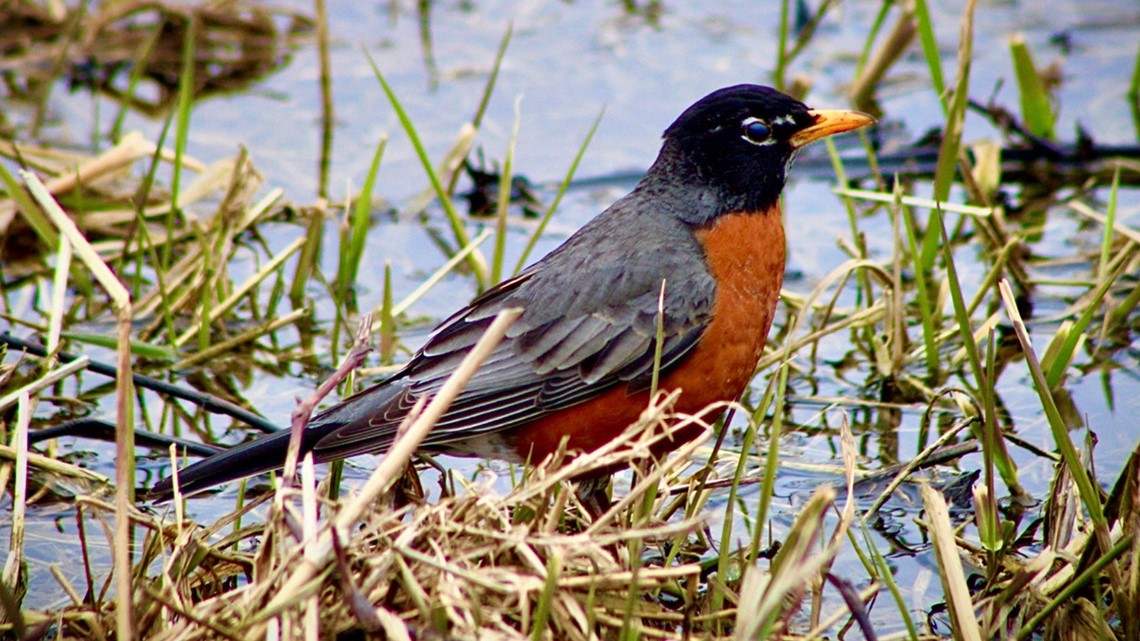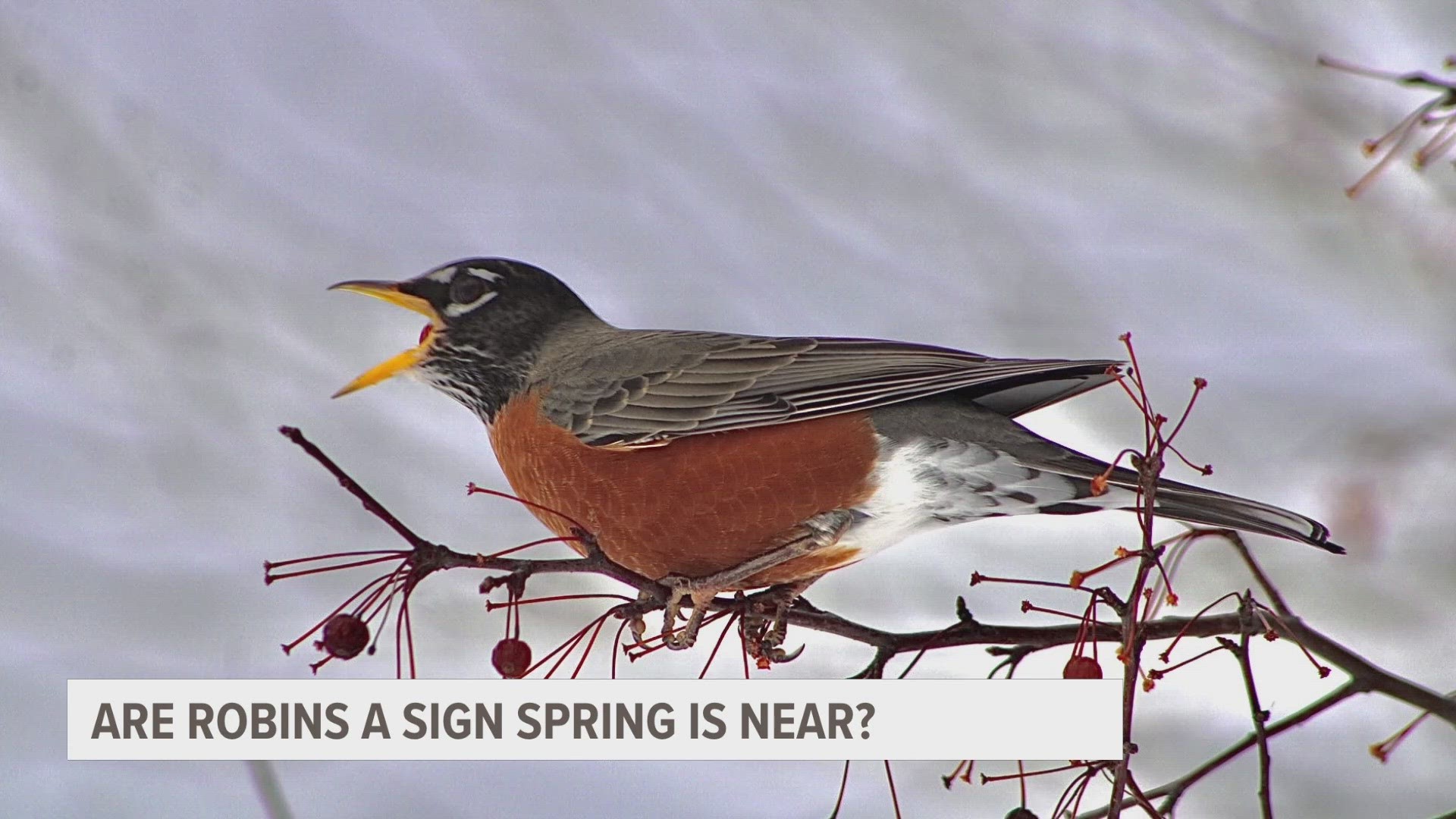GRAND RAPIDS, Mich — It's that time of year again. The temperatures are cold. The trees are leafless and powdered with a beautiful layer of snow. And on a personal note, another sure sign of winter is when my friends and family ask their favorite bird nerd why they're seeing robins in their backyard.
It's such a common question that a beloved friend and former 13 ON YOUR SIDE employee literally texted me a picture of a robin as I was writing this story and said "I just saw like four robins. That seems weird in January?"
The American Robin is Michigan's state bird, and just like many Michiganders, the robin is famous for leaving town for a little while when the weather gets cold. Its scientific name, Turdus migratorius, reflects just how common robin migration is.
But unlike human Michiganders, robins leaving "The Mitten" aren't looking for a sandy Florida beach. They're not even necessarily looking for a break from the cold. Feathers provide great insulation from harsh winter temperatures, as the cardinals and chickadees that frequent your bird feeder can attest.
Robins actually migrate because their favorite food, worms, aren't available to them with the ground freezes. So, they head south where they can find more of the protein-filled goodness that they need.
Here's the thing, though. Just because most robins leave Michigan doesn't mean that all of them do.
Robins also enjoy berries and throughout the winter months there are a lot of berries left on trees. Those berries aren't packed with life-sustaining protein like a worm would be, so staying up north comes with its risks. Some robins don't survive the season, but those that do will be handsomely rewarded when spring rolls around.


Think about how physically taxing it would be to fly hundreds, maybe thousands, of miles during migration season. Once you reached your destination, it would probably be difficult to set up a territory for yourself ahead of breeding season. That's what migrating birds do. But if you had spent the winter in one spot foraging for food instead of flying all those miles, you'd be much more well-rested and able to fight off any intruders that might try to take over your spot. That's the reason some robins stick around.
So there you have it. The American Robin might be seen as the unofficial mascot for springtime, but you may still see some stragglers sticking around and hunkering down for a long winter. Just like the people it represents, Michigan's state bird sometimes heads for warmer climates in the winter, and sometimes it stays right here, at home.
Want to learn more about the American Robin? Check out the latest episode of Michigan Bird Nerd, a series produced here at 13 On Your Side that you can watch for free on 13+ and the 13 On Your Side YouTube page.
►Make it easy to keep up to date with more stories like this. Download the 13 ON YOUR SIDE app now.
Have a news tip? Email news@13onyourside.com, visit our Facebook page or Twitter. Subscribe to our YouTube channel.
Watch 13 ON YOUR SIDE for free on Roku, Amazon Fire TV Stick, Apple TV and on your phone.

